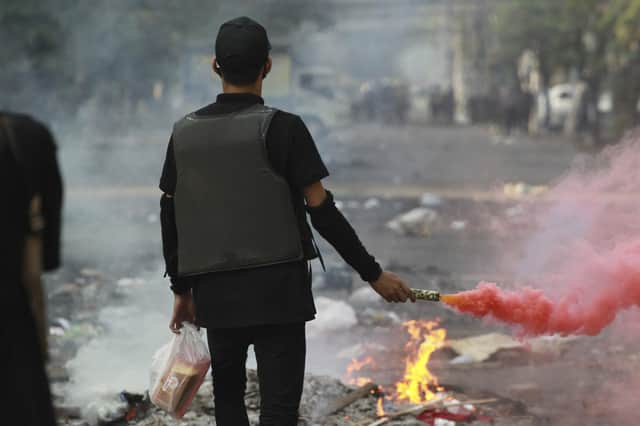History repeats itself in Myanmar - Marc Weller


After the military regime in Myanmar lost the elections of 1990 to Aung San Suu Kyi and her National League for Democracy, they annulled the result, arrested the freshly elected parliamentarians, tortured many of them and killed some. Now, a quarter of a century later, the military in Myanmar has repeated the exercise.
The coup took place on 1 February, the day the newly elected parliament was meant to assemble. The members of the NLD and their allies, flush with their overwhelming victory in the poll held last November, were rounded up. There are allegations of torture and the first deaths are said to have occurred in custody. Aung San Suu Kyi, who had endured many years of house arrest before, has been returned to detention.
Advertisement
Hide AdAdvertisement
Hide AdAs in 1990, the military seemed to have underestimated the drive for more genuine democracy among the people of Myanmar.
General Min Aung Hlaing was meant to retire this summer. He had planned to take over as President at that point. However, the overwhelming election victory of the NLD made this impossible. Hence, he acted just before the new parliament could be sworn in, declaring the elections invalid.
The international community has found it difficult to respond effectively, as China has traditionally held a protective umbrella over the generals. Yesterday, China blocked universal sanctions proposed in the United Nations Security Council.
Instead, the US and the EU are adopting targeted sanctions of their own against key military officials involved in the coup. This may have only limited effect.
Nevertheless, there may be opportunities to isolate the regime. Myanmar’s economy is forecast to shrink by around 10 per cent in the wake of the coup and foreign investment may dry up. Moreover, there is the question of Myanmar’s diplomatic representation.
Most notably, and embarrassingly for the military, Myanmar’s Permanent Representative to the United Nations, Kyaw Moe Tun, rejected the coup and called for a transfer of power to the elected representatives in a formal session of the UN General Assembly. The UN ignored the General’s attempts to displace him.
In international law, whoever exercises effective power within a state is generally taken to be entitled to represent it internationally. However, the principle of democratic legitimacy has gained some currency in international practice.
Already the UN Declaration on Human Rights of 1948 provides that the authority to govern must be based on the will of the people. Since the end of the Cold War, the right to periodic and genuine elections has been reinvigorated. While states remain free to determine their own electoral system—often in ways that are not in fact genuinely democratic—the principle has been given some hard meaning in two circumstances.
Advertisement
Hide AdAdvertisement
Hide AdWhere a government is displaced by a counter-constitutional coup, or where a clear election result, duly certified, is not implemented, the claim of the effective but unlawful authorities to represent the state may be overturned. Hence, the elected members of the Myanmar parliament who have managed to evade the dragnet of the military are likely to form an alternative government to hold in trust the democratic mandate granted to the NLD and Aung San Suu Kyi. Their claim to representation will be tested next autumn, when the General Assembly will determine at its next session who is entitled to occupy Myanmar’s seat on the international stage.
Comments
Want to join the conversation? Please or to comment on this article.